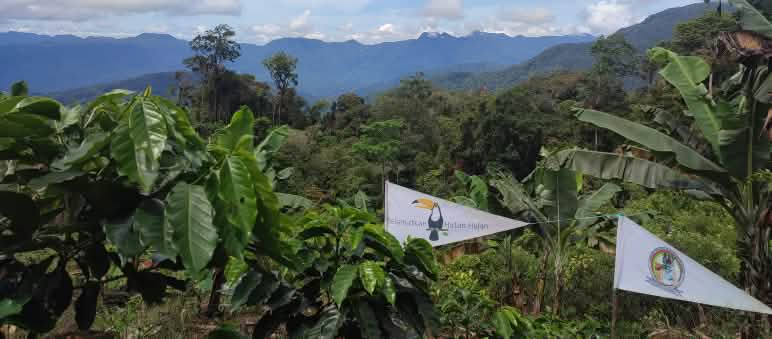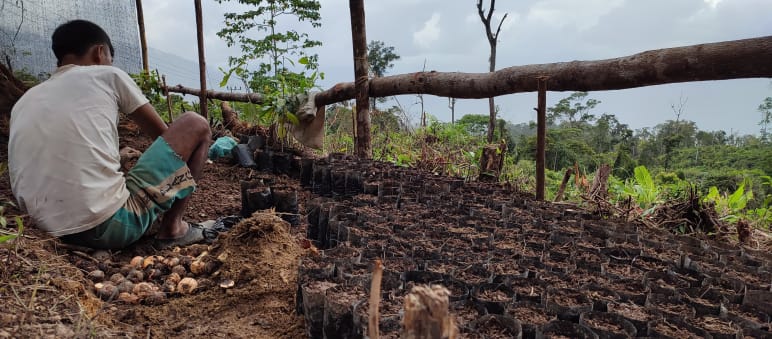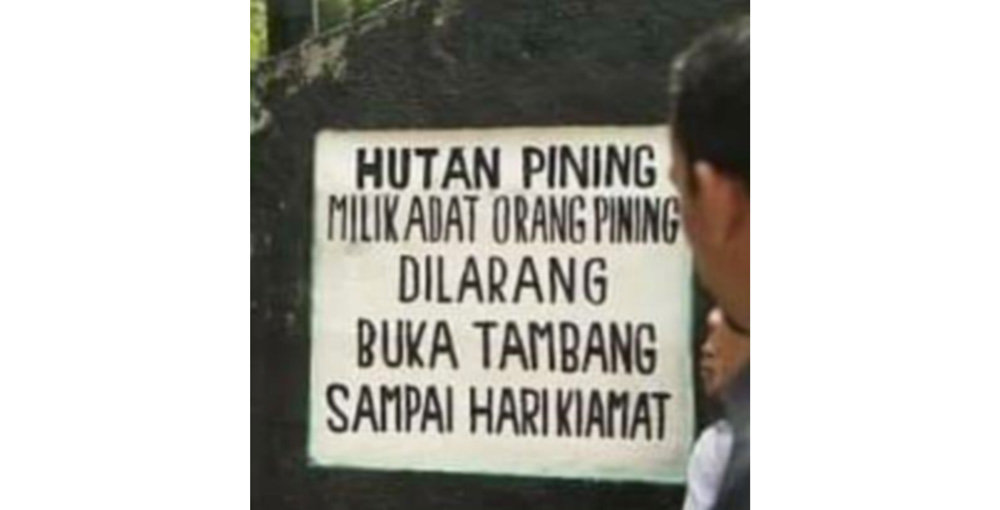The Indigenous Gayo of Pining harvest their first fruit while defending the Leuser ecosystem
Indonesia: The plantation of jungle, fruit and coffee trees in the Leuser ecosystem is thriving. After three years, the Tigers of Pining harvest the first fruits and defend the rainforest from logging, mining and dams.
“We protect our forest with all our strength, we defend it against threats, we plant trees — and now our tree nursery is bearing its first fruits,” reports Usman Ali from the Tigers of Pining Tree Nursery project.
The Tigers of Pining are of the Indigenous Gayo peoples from the district of Pining in the middle of the Leuser Mountains: the only place on earth where orangutans, elephants, rhinos and tigers live in the same habitat.
Three years ago, with a small sum of money provided by Rainforest Rescue, the group started to grow a tree nursery with seedlings from jungle and fruit trees as well as cacao and Arabica coffee. Known for its high-quality, the coffee from the Gayo highlands has grown in popularity and is an important source of income for the local community.
“The tree nursery is designed for the long term,” says Usman Ali, “so that all residents can benefit from it, not least our children and grandchildren. That's why we are still hoping for donations.” The aim of the tree nursery and reforestation is to strengthen the Indigenous community's resistance against the destruction of the Leuser ecosystem and at the same time be able to gain a livelihood on the sale of the coffee and fruit.
“Protecting our rainforest means protecting Indigenous people and our entire planet.” Usman Ali, Tiger of Pining
The Gayo people of Pining have had a close relationship with the forest for many generations. Because their survival depends on a healthy ecosystem, they take great care to ensure that the forest remains intact and preserved for future generations. According to Indigenous law, individuals cannot be forest owners, only the community. The indigenous elder (pemangku adat) decides on the use of the land.
Their tradition identifies four types of forest use:
-
Belang Penjemuren refers to the edge of the forest. This is where the rice stores and huts are located, where young people spend the night to protect the crops from wild animals.
-
Belang Perutemen is part of the forest where villagers are allowed to collect firewood and timber.
-
Belang Perueren is the area of the forest where livestock such as cattle and water buffalo can graze. No food may be gathered or grown here.
-
Aih Aunen are water holes near the village, providing bathing areas for women and men.
Despite modern influences, the rituals and traditions of the Gayo of Pining remain vibrant and alive. Rituals including the planting and harvesting of rice, sacred ceremonies at the graves of ancestors and in particular, rituals governing the care and use of the forest.
Years ago, the Indigenous people of Pining collectively decided “The forest of Pining belongs to us, the Indigenous people of Pining. We reject mining until the end of time”. In 2017 the company PT Wayang Mining Gayo was prevented from mining galena, an ore that contains lead and silver.
In 2019, the planned construction of a dam, in an area home to orangutans, tigers and elephants by the Hong Kong company Kamirzu, was blocked. This dam would have flooded 4,407 hectares of forest, including the village of Lesten. In the end, the Supreme Court rejected the project on the grounds that the province could not grant a concession of more than five hectares.
Rainforest Rescue has reported on this (in Indonesian) as well as the non-profit environmental news organization Mongabay (in English).
But once again, in April 2025, surveys for Kamirzu were carried out under police protection.
Abundant in minerals and water, the region of Pining faces pressure that threatens 100 000 hectares of ancient forest. The government must stop issuing permits for logging, mining and hydropower projects so as to protect it.
“Despite having lived here long before the Republic of Indonesia existed, the government ignores us Indigenous Gayo. Time and again, economic policies threaten our forest,” says Usman Ali.
The big problem is that the government considers forests to be state-owned and although there is a program that allows Indigenous communities to obtain forest ownership and forest rights, the bureaucratic and technical process is lengthy and complicated.
The forest of Pining is still not officially an “Indigenous forest” (in Indonesian: Hutan Adat). In the mean time, the government granted Said Muchtar, the former independence fighter and an outsider, a license to log 200-hectares of the forest.
The Tigers of Pining, together with environmental groups in the province and Rainforest Rescue wrote a letter of protest to the authorities and the Ministry of Forestry against this new logging permit (in Indonesian).
What's next
Traditional Guidelines for Conservation
The Tigers of Pining aim to permanently protect their forest area with its rich flora and fauna, based on the tried and tested traditional rules. To this end they have developed a guideline for procedures, prohibitions and sanctions.
Official Forest Status
Significant progress has been made in designating the forest as an Indigenous forest (Hutan Adat), but official confirmation from the district of Gayo Lues regarding 104,454 hectares of forest still needs approval from the government in Jakarta.
Tree Nursery as Education
Support for the people in the villages is essential as they grapple with poverty and a general lack of agricultural knowledge. This makes the tree nursery a place for both cultivation and learning. The seedlings provided are on a kind of ‘loan’, and as the plants thrive the ‘borrowers’ can pass on the new seedlings to others.
The group's full name is Tigers of Pining, Forum of the Guardians of Forest and River.
This page is available in the following languages:
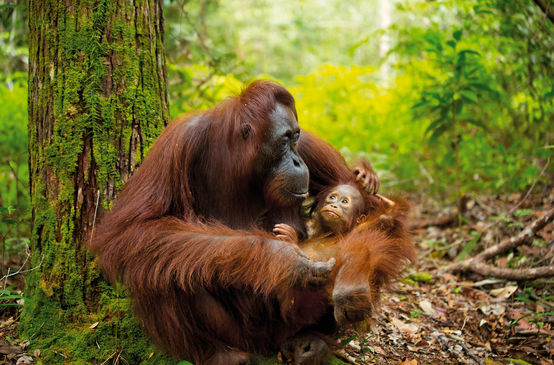
Defending rainforests in Southeast Asia
The forests of Southeast Asia are the last refuge and habitat of orangutans, Sumatran tigers, birds of paradise and Komodo dragons.
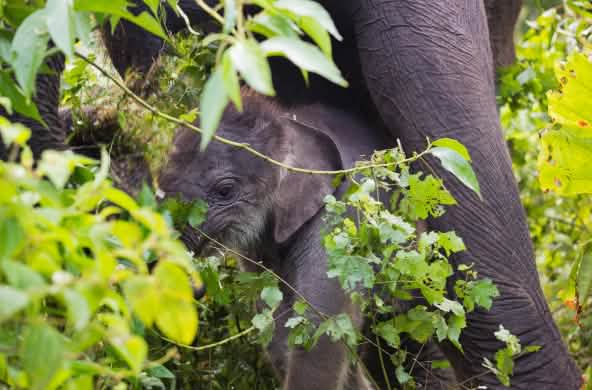
Protect Leuser's iconic wildlife!
The Leuser Ecosystem is the only place where orangutans, tigers, elephants and rhinos share a habitat. But a new land use plan could open it.
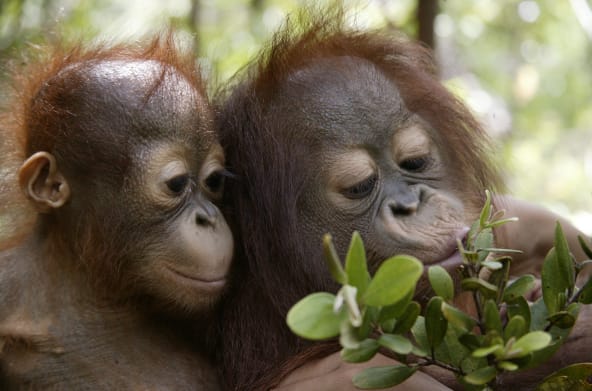
The rainforest
A green sea of ferns, mosses, vines and ancient trees. Iridescent butterflies and colorful birds. Flowers in every hue of the rainbow. The “green lung” is a natural wonder of the world. Find out more about the world’s most diverse, fascinating and threatened ecosystem.
